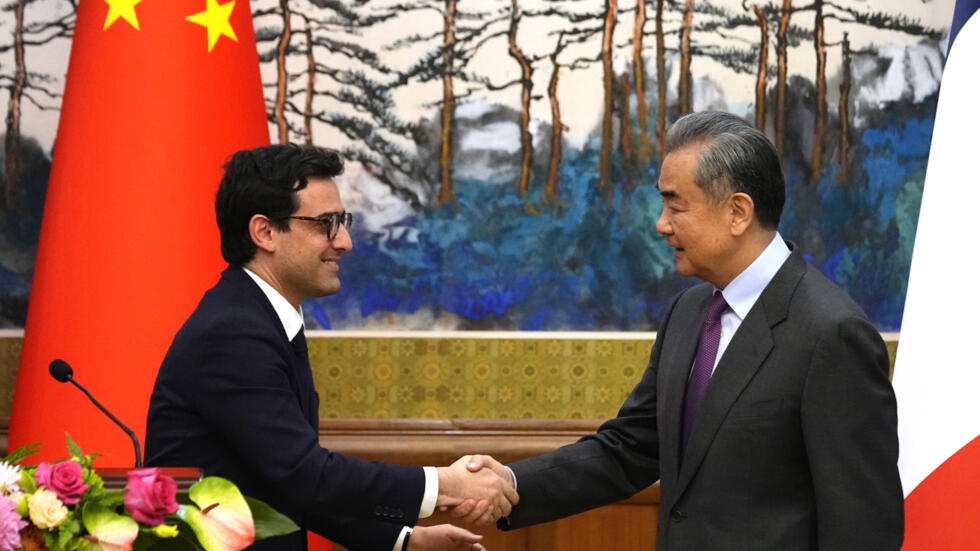An official of the Russian occupation in eastern Ukraine, Valéri Tchaika, died Monday in the explosion of a “car bomb” in Starobilsk, said the head of the pro-Russian municipal administration.
“Our comrade is dead,” Vladimir Chernev wrote on Telegram, adding that an investigation was underway. In the past, car bombings blamed on Ukraine have repeatedly targeted pro-Russian officials in occupied Ukrainian regions.
France calls on China to pass “messages” to Russia
French Foreign Minister Stéphane Séjourné called on China to send “very clear messages to Russia” over the war in Ukraine. “We expect China to send very clear messages to Russia,” declared the minister, pleading for “a balance of power favorable to Ukraine” during a press conference in Beijing with his Chinese counterpart Wang Yi. Because “obviously China plays a key role in independence, respect for international law including the sovereignty of Ukraine,” he said.
China, which presents itself as a neutral party but whose relationship with Russia has deepened since the start of the conflict, advocates a political settlement to end the fighting. It is regularly called upon by Western countries to play a more active role in this conflict, using its influence over Moscow.
Ukraine claims to have repelled a major Russian attack west of Avdiivka
The Telegram account of the 25th brigade of the Ukrainian airborne forces broadcasts a video showing a column of 36 tanks and 12 infantry fighting vehicles (BMP) of the 6th tank regiment of the Russian army. Twenty Russian armored vehicles were put out of action.
It is one of the largest “massacres of Russian armor” since the start of the war, notes Forbes. “Twelve tanks and eight BMPs were knocked out of action,” wrote Kriegsforscher, a drone operator with Ukraine’s 36th Marine Brigade.
State of health of dissident Oleg Orlov
The Russian human rights organization Memorial is concerned about the deteriorating state of health of dissident Oleg Orlov, imprisoned for denouncing the offensive in Ukraine, accusing the authorities of subjecting him to “inhumane treatment”.
A leading figure in the defense of human rights, Mr. Orlov was sentenced to two and a half years in prison at the end of February for publicly denouncing the offensive in Ukraine. Unlike many other Kremlin critics, Mr. Orlov decided to stay in Russia to “continue the fight.”
This article is originally published on midilibre.fr








